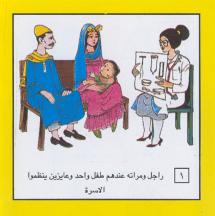Behavioral Economics and Social and Behavior Change Communication
The Johns Hopkins Center for Communication Programs (CCP) has more than 30 years of experience in strategic social and behavior change communication (SBCC) and has used behavioral economics (BE) concepts over the past decades to influence how and why people make choices that affect their own health and well being and that of their families and communities.
BE elements can add benefit in understanding how people think, decide and act when developing SBCC programs. This page offers examples of campaigns that illustrate the four core BE concepts.
- Priming/Framing
- Commitment devices/Reminders
- Heuristics (Scripts)
- Behavioral Defaults
Last modified: July 14, 2020
Language: English

